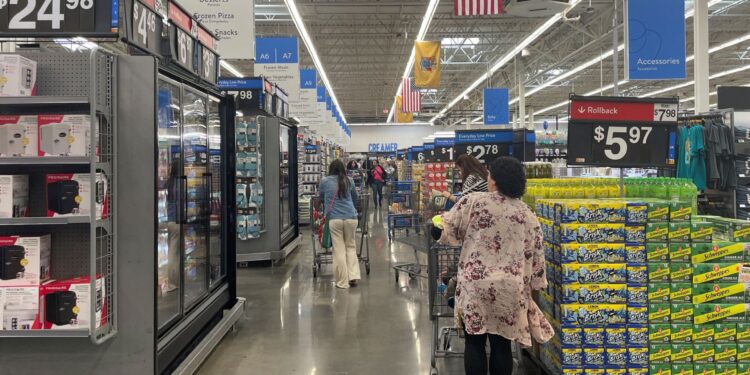In light of the escalation of protectionist measures taken by the administration of US President Donald Trump, Brazil’s economic experience arises as a warning model for what matters in the United States may lead if these policies continue in the same manner.
The Wall Street Journal says in a report that Brazil has one of the highest customs duties in the world, today provides a realistic picture of a very closed economy, in which manifestations of high costs, poor productivity, and the decline of competitiveness are evident.
Does protectionism create a strong economy?
Although Brazil is producing and collecting many goods locally – such as iPhone phones, and most cars on their roads – the ordinary consumer pays a heavy price.
British “BG Tips” tea is sold at $ 53, and the Canadian maple drink is $ 35 The reason is a suffocating customs system, exchange controls, and a complex license bureaucracy, according to the newspaper.
According to the report, the iPhone 16 in Brazil is sold at a price of nearly twice the version made in China, which is sold in America with $ 799.
Early industrial contraction
Figures indicate that the contribution of the manufacturing industry to the Brazilian GDP decreased from 36% in 1985 to only 14%, which was considered by the Industrial Development Institute in Sao Paulo, one of the worst cases of “premature manufacturing” in the world.
“Trump’s ideas to protect the American industry are similar to what we believed in Latin America after the Second World War … but it simply did not succeed,” former Brazilian Minister of Finance, Mileson Noberga, told Wall Street Journal.
The speech itself and the results are different?
Ironically, the current Brazilian President Lula da Silva, while visiting Japan, criticized Trump’s policies, saying: “We have to overcome trade protection and expand free trade prospects.”
However, his party, the Labor Party, has always defended protectionist policies similar to the Trump approach, which prompted Lucas Ferz, the former Secretary of Foreign Trade, to describe this position as “contradictory”, saying: “They actually adopt the same model that Trump thinks,” says Wall Street Journal.
Is the American structure able to withstand?
The newspaper states that although the United States has a better infrastructure and a simpler tax system than Brazil, the trend towards economic closure may create similar problems, especially with 10% fees remaining on most commercial partners, and raising fees on China in an unprecedented way.
Experts warn that adopting policies similar to the “Brazil model” may harm profits in the long run, lead to competitive erosion, high prices, and the gap between the local product and the final consumer.
Is the experience repeated?
While the Trump administration is trying to impose its vision of what it calls “the rebuilding of the American industry”, the Brazilian experience – the newspaper says – reminds us that protection alone does not build strong economies, but that the absence of competition and smart openness strategies may turn the noble goal into a long -term economic burden.



